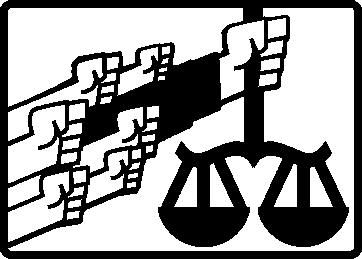ARROYO CABINET SHOULD DEMAND FIRING OF SEC. GONZALEZ: Sen. Villar and Speaker de Venecia should publicly defend the IPU
Sec. Gonzalez lambasted a high level delegation led by the Secretary General of the Inter Parliamentary Union (IPU) for merely expressing a Resolution approved by the entire membership of the IPU asking for the release of Rep. Crispin Beltran, curtly telling them ‘if you don’t want to accept my explanation you can go home and tell the whole world what you want’, adding that “I don’t want foreigners dictating on us”.
Sec. Gonzalez was less than candid when he told the IPU the matter is “beyond me” because Rep. Beltran remains in detention due to the DOJ’s persistent objection to his release. In fact, it was the DOJ which sanctioned Rep. Beltran’s warrantless arrest and insisted that Rep. Beltran should not be granted his right to bail despite the very weak evidence against him. Sec. Alberto Romulo of the DFA should insist that Sec. Gonzalez be fired, not only for breaking protocol, but also for further exposing the intolerance of the Arroyo government to dissenting opinions. The Philippines is a member of the IPU and is therefore bound to give its representatives common courtesy. Sen. Villar and Speaker de Venecia are duty bound to the IPU to defend its representatives from the bullying of local government officials. Both should publicly demand the firing of Sec. Gonzalez.
Furthermore, Sec. Gonzalez who was in the US during martial law, is expected to know that under international law, human rights issues are of international concern since the UN promulgated the Universal Declaration of Human Rights and the Philippines is bound under Article 2 of the International Covenant on Civil and Political Rights to take action on human rights violations. He cannot denounce expression of concern over current human rights conditions in the country coming from the UN, European Union and now the IPU, as meddling or dictation from foreigners.
Blaming Peace Corpse Volunteer Julia Campbell
Sec. Gonzalez also made another insensitive remark by stating that Julia Campbell was to blame for her own death because she ‘carelessly’ went hiking alone in the Banaue Rice Terraces. Under international law, the domestic government has the burden of preserving peace and order within its jurisdiction and is obligated to protect foreigners from harm, particularly from criminal elements, while they are within that government’s territory. A municipal government cannot blame aliens who fell victims to local criminal elements since the “responsibility to protect” falls on the government. Sec. Romulo and the US government should demand the ouster of Sec. Gonzalez not only for insensitivity but for his ignorance of international law. Tourism Secretary Ace Durano should take notice of Sec. Gonzalez’ statement, which practically declared Banaue unsafe for tourists. The statements of the Arroyo government vigorously assuring countries which have issued negative travel advisories, of the safety of their nationals in the Philippines, has been exposed as a lie by the voluble Justice Secretary’s admission.
It must be noted that under the Philippine constitutional system, a cabinet member is the alter ego of the President and his actions are deemed the acts of the President unless reprobated or renounced by the President. The statements of the Justice Secretary, unless renounced, is an admission that such reflect the position of the Arroyo government.
CODAL believes that the Justice Department is not only expected to administer justice and the law, but is also expected to know the law. Affected members of the Arroyo cabinet and both Houses of Congress should express concern over the Justice Secretary’s remarks which have affected their respective institutions. Pres. Arroyo should now seriously consider whether it is beneficial to allow her justice secretary continue acting as her alter ego.
